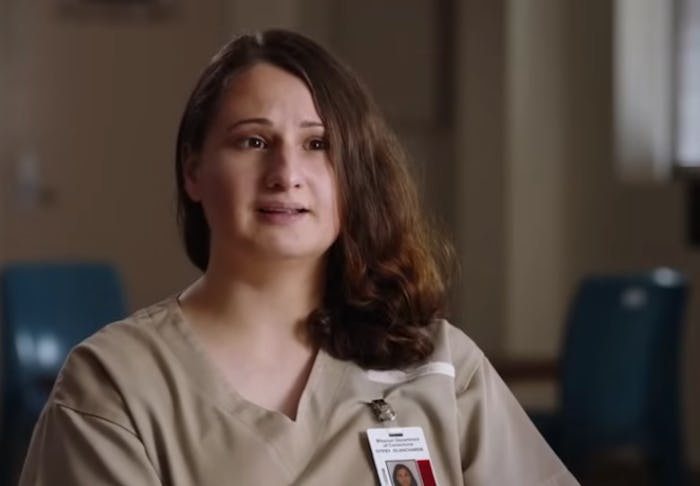True Crime
How To Watch The Prison Confessions of Gypsy Rose Blanchard
The six-hour special premieres on Jan. 5.
Eight years after conspiring with her boyfriend to murder her abusive mother, Gypsy Rose Blanchard, whose story was made famous by a 2016 BuzzFeed article by journalist Michelle Dean, was released from prison. Her tragic life has been the subject of tabloids, documentaries like Mommy Dead and Dearest, and limited-series like Love You To Death and The Act. And now, a week and a day after her release, a new series will shed light on this bizarre and horrible chain of events. Here’s what you need to know, including how to watch The Prison Confessions of Gypsy Rose Blanchard.
How to watch The Prison Confessions of Gypsy Rose Blanchard.
The three-part series will air over three consecutive days, Friday, Jan. 5 to Sunday, Jan. 7, at 8 p.m. on Lifetime. If you don’t have cable however, you still have options.
The series will be available on a number of streaming platforms, including Hulu + Live TV, Sling TV, Philo, Fubo, and DirecTV Stream. (As always, never sleep on the free trial period offered by many of these services). Episodes will also be available to stream on MyLifetime for free the following day (so look for them Saturday, Jan. 6 through Monday, Jan. 8).
This new Gypsy Rose documentary was filmed while she was still incarcerated.
In the first episode, “Born A Prisoner,” Gypsy recalls her early childhood of unfounded medical conditions and allegations of sexual abuse as she prepares for her parole hearing. The series continues with “On The Run,” which explores Gypsy and Dee Dee’s relocation to Missouri following Hurricane Katrina and the daughter’s burgeoning struggle for independence. The conclusion, “I Pulled The Trigger,” details the events that lead up to Dee Dee’s murder.
Gypsy Rose Blanchard’s mother likely had Munchausen by proxy and abused her for years.
Rod Blanchard, Gypsy’s father, has said that from the time Gypsy was 3 months old, her mother Dee Dee Blanchard was convinced, or tried to convince others, that Gypsy had medical problems ranging from sleep apnea to leukemia, asthma to epilepsy, and even a chromosomal disorder. She did not have substantial evidence to back any of these claims. Nevertheless, over the course of her life Gypsy was treated unnecessarily with powerful, damaging drugs and even surgery. Despite needing neither a wheelchair nor a feeding tube, she was made to use both well into her 20s.
Over the course of Gypsy’s life, Dee Dee and Gypsy benefitted from charitable donations, earning special trips from the Make A Wish Foundation and even a house from Habitat For Humanity.
Gypsy’s boyfriend, Nick Godejohn, murdered Dee Dee in 2015 with Gypsy’s knowledge and cooperation.
As Gypsy became increasingly aware that her various medical issues were fabricated, she became angry and began to rebel. (To be clear, her form of “rebellion” was simply doing things that ordinary people her age would be expected to do, like have a boyfriend.) In 2012, she met Godejohn online and before long they formed a deep but disturbing relationship where they expressed dark, violent, and sexual fantasies to one another. They met in person for the first time in 2015 and began planning Dee Dee’s murder. In June of that year, Godejohn stabbed Dee Dee 17 times. The pair were found at Godejohn’s home in Wisconsin days later.
Gypsy pled guilty to second degree murder and was sentenced to 10 years with time served.
Though the murder was clearly planned out in advance — the very definition of murder in the first degree — a plea bargain was reached after Gypsy’s lawyer and the prosecution learned the scale and scope of her abuse via her copious medical records. Gypsy was eligible for, and granted, parole in September 2023. The parole board could not release her any earlier due to a Missouri law that dictates prisoners must serve at least 85% of their sentence. She was released from the Chillicothe Correctional Center on Dec. 28, 2023.
Godejohn was found guilty of first degree murder and is currently serving a life sentence without parole.
This article was originally published on
